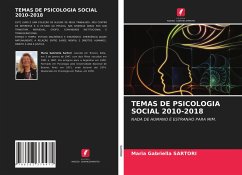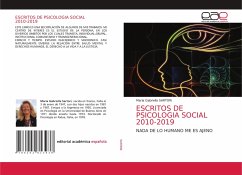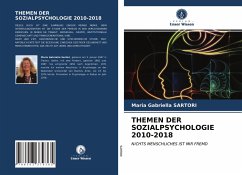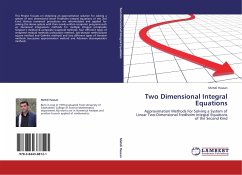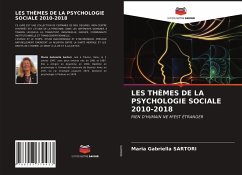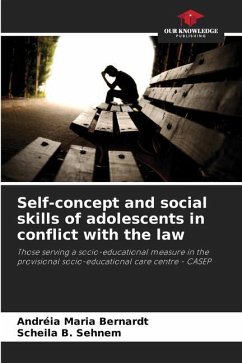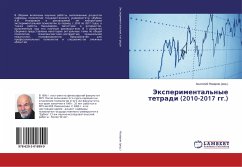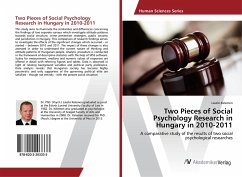
Two Pieces of Social Psychology Research in Hungary in 2010-2011
A comparative study of the results of two social psychological researches
Versandkostenfrei!
Versandfertig in 6-10 Tagen
15,99 €
inkl. MwSt.

PAYBACK Punkte
8 °P sammeln!
This study aims to illuminate the similarities and differences concerning the findings of two separate surveys which investigate attitude patterns towards social structure, crime prevention strategies, public security and jurisdiction in Hungary. This comparison of research findings serves to investigate the effects of the significant changes which occurred - or started - between 2010 and 2011. The impact of these changes is also assessed in order to understand the current nature of thinking and attitude patterns of Hungarian people. Analytic procedure is conducted in the framework of descript...
This study aims to illuminate the similarities and differences concerning the findings of two separate surveys which investigate attitude patterns towards social structure, crime prevention strategies, public security and jurisdiction in Hungary. This comparison of research findings serves to investigate the effects of the significant changes which occurred - or started - between 2010 and 2011. The impact of these changes is also assessed in order to understand the current nature of thinking and attitude patterns of Hungarian people. Analytic procedure is conducted in the framework of descriptive statistics with the help of SPSS software. Scales for measurement, medians and numeric values of responses are offered in detail with referring figures and tables. Data is observed in light of relating background variables and political party preference. Data analysis reveals that Hungarian society has become highly pessimistic and only supporters of the governing political elite are satisfied - though not entirely - with the present social situation.



